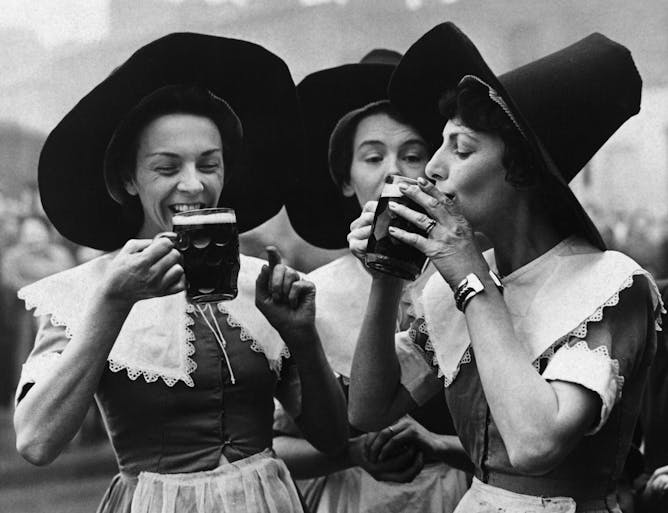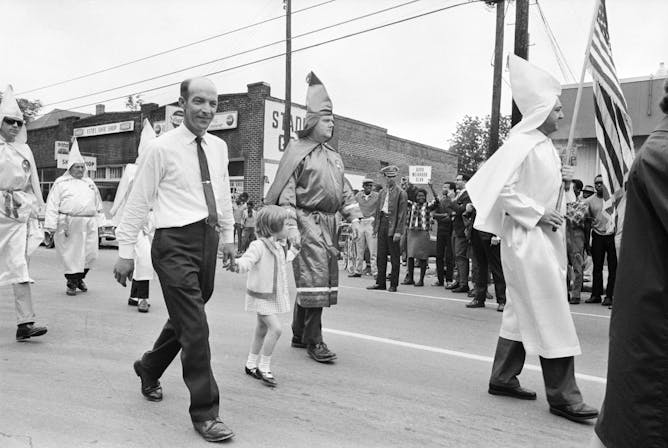|
Catholic bishops may have just made the tricky COVID-19 vaccine rollout more complicated. They’re raising concerns about the new Johnson & Johnson vaccine and its connections to cloned cells linked to abortions in the 1980s. Their statement could push believers to reject the new vaccine.
If states don’t respond carefully to this concern and other concerns regarding the vaccine’s efficacy, the result could be a vaccine scheduling nightmare. Patients could get frustrated and vaccine doses wasted, explain Tinglong Dai of Johns Hopkins University, Christopher Tang of UCLA and Ho-Yin Mak of Oxford University – experts specializing in health care operations, data analytics and supply chain management.
This week we also liked articles about the depiction of witches as women in pointy hats who stir potions in cauldrons, lessons learned from a police crackdown on the KKK in the 1960s and why the U.S. maintains alliances with repressive governments.
|

The concern is about more than one shot vs. two.
Michael Ciaglo/Getty Images
Tinglong Dai, Johns Hopkins University School of Nursing; Christopher S. Tang, University of California, Los Angeles; Ho-Yin Mak, University of Oxford
Religious opposition over a link to abortions performed decades ago and misunderstandings about effectiveness could lead to a nightmare of angry patients and wasted vaccine.
|

Three women dressed in period garb as alewives. The tall hats became a part of witch iconography.
Hulton-Deutsch Collection/Corbis via Getty Images
Laken Brooks, University of Florida
Much of the iconography we associate with witches, from the pointy hat to the cauldron, originated from women working as master brewers.
|

Archival image from 1967 shows protesters demonstrating while Ku Klux Klan members walk in a parade to support the Vietnam War.
Bettmann Archive/Getty Images
David Cunningham, Washington University in St Louis
If history is a guide, expanding police powers to address current white nationalist threats could result in future repression of activists of color.
|
|
|
-
Jeffrey Fields, USC Dornsife College of Letters, Arts and Sciences
Saudi's crown prince approved the killing and dismemberment of a Washington Post columnist in 2018, the Biden administration says. So how can the US still see the Saudis as good partners?
|
|
|
|
-
Maciej F. Boni, Penn State
The US was not ready for the coronavirus pandemic in 2020. What can public health leaders and policymakers do to make sure we don't face another winter of rampant disease?
|
|
|
|
-
Ramazan Kılınç, University of Nebraska Omaha
The events that followed the 2003 US invasion of Iraq started a cycle of violence against the country's minority Christian population. The pope's visit is meant to bring some 'healing and comfort.'
|
|